“Among the things I have learned while working with the Pauline Publications is their professionalism. They are very professional and businesslike. But at the same time, they are very loving, very caring and friendly. It is a pleasure and fun working with them,” Mr. Ashworth said.
The English author who describes himself as a “retired missionary” and has spent over 40 years working with the Catholic Church in Sudan and South Sudan said that through the Pauline Sisters, the world can know more about Africa.
 Credit: Paulines Publications Africa (PPA)
Credit: Paulines Publications Africa (PPA)
“We need to remember that the whole world needs evangelization. We need to remember that Africa, and the Church in Africa has lessons to be heard by the universal Church. Too often, Africa gets overlooked, and everything comes out of North America, or Europe, or wherever. Some of the books I have published with Paulines are about Africa and the African Church,” he said.
Meanwhile, Mr. Ashworth has lauded FSP members in South Sudan especially for their work in Juba where they are engaged in other pastoral activities on top of running a bookshop in the country’s only Metropolitan See.
(Story continues below)
“You know that Kenya’s neighbour South Sudan is a country where there is a great deal of violence and instability,” Mr. Ashworth said at the March 8 event of the launching of the FSP members’ restyled institutional and trademark logos.
 Credit: Paulines Publications Africa (PPA)
Credit: Paulines Publications Africa (PPA)
He said that undeterred by the violence, the Daughters of St. Paul commissioned their members to Juba Archdiocese to provide the people with a bookshop.
“Usually, it is very difficult to get access to any sort of material in South Sudan. A bookshop, therefore, is a tremendous boost to the Church and to the people,” the Nairobi-based English author who has been involved in the Catholic Nonviolence Initiative under the Auspices of the Vatican’s Dicastery for Promoting Integral Human Development (DPIHD) and Pax Christi International said.
Mr. Ashworth who also authored “The Voice of the Voiceless: The Role of the Church in the Sudanese Civil War 1983-2005” recounted that when members of the Daughters of St. Paul first landed in South Sudan, there was not a proper house for them, and that they stayed “squashed into a little prefab” before they got a decent house.
 Credit: Paulines Publications Africa (PPA)
Credit: Paulines Publications Africa (PPA)
“There was violence; there was fighting in the streets; but the (FSP) Sisters stayed with us. At the time when many other people were evacuating from South Sudan, the Daughters of St. Paul stayed with us,” he said.
He added that given most of the people in South Sudan are traumatized after many decades of war, many of those who went to the Paulines bookshop sought healing.
“People started coming to the bookshop, not to buy books but just because they knew they would find a friendly welcome. They knew the Sisters would listen to them. Eventually, the bookshop became like a counselling centre,” Mr. Ashworth continued.
 Credit: Paulines Publications Africa (PPA)
Credit: Paulines Publications Africa (PPA)
He further said that on Saturdays, the Daughters of St. Paul closed the bookshop to go to camps for the hundreds of thousands displaced people in South Sudan to do pastoral work, especially with the women.
The restyling of the FSP trademark logo that has been in use since 1994 was a fruit of a couple of years of research and analysis, including the examination of FSP-owned media platforms across the globe through the help of Nova Opera Agency.
Agnes Aineah is a Kenyan journalist with a background in digital and newspaper reporting. She holds a Master of Arts in Digital Journalism from the Aga Khan University, Graduate School of Media and Communications and a Bachelor's Degree in Linguistics, Media and Communications from Kenya's Moi University. Agnes currently serves as a journalist for ACI Africa.
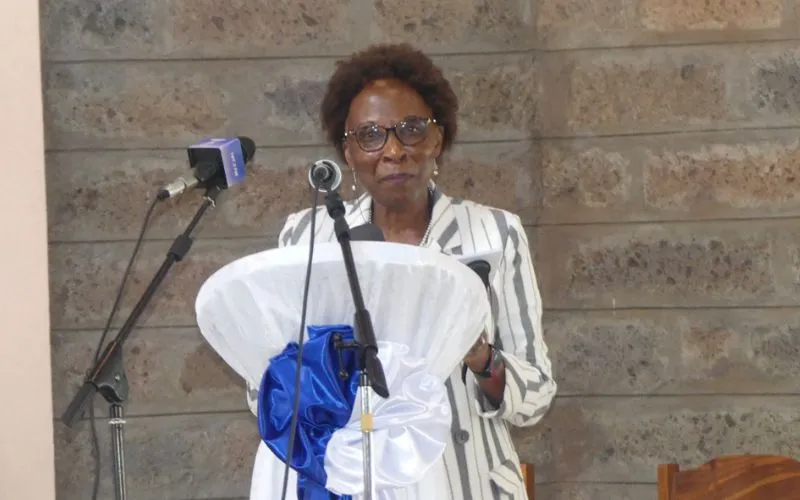 Prof. Christine Gichure, a widely published Kenyan researcher. Credit: ACI Africa
Prof. Christine Gichure, a widely published Kenyan researcher. Credit: ACI Africa


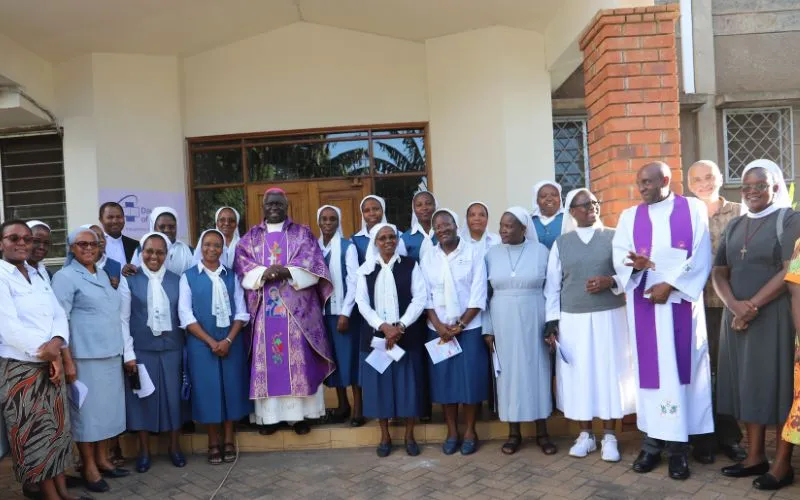
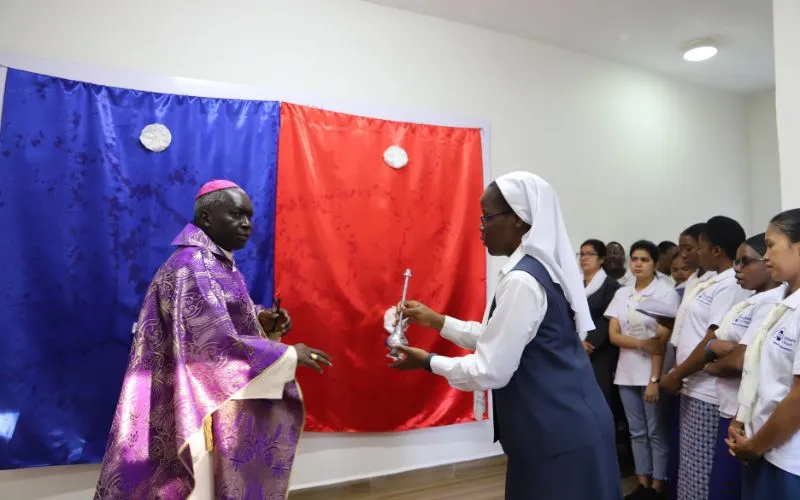 Credit: Paulines Publications Africa (PPA)
Credit: Paulines Publications Africa (PPA)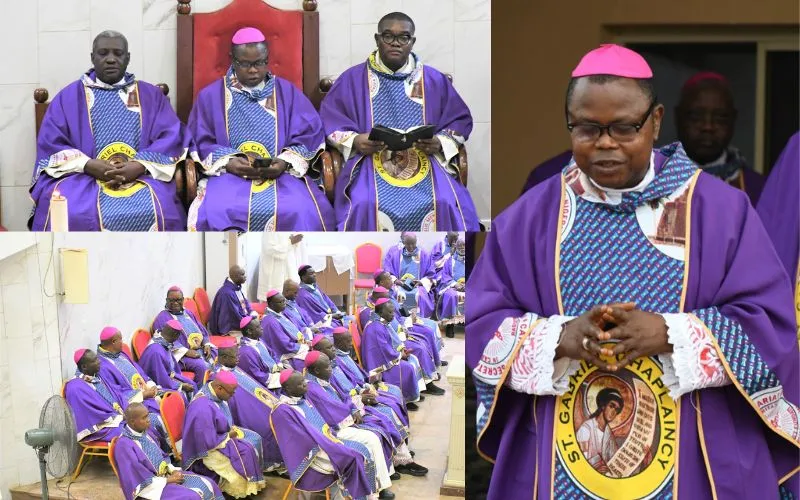
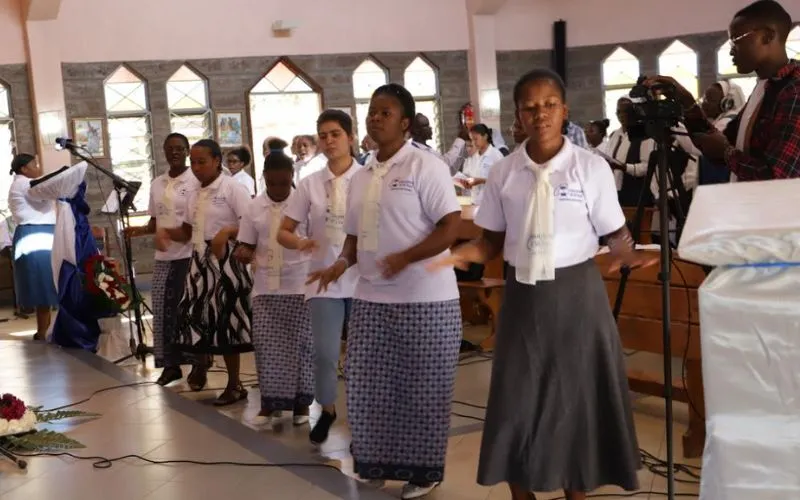 Credit: Paulines Publications Africa (PPA)
Credit: Paulines Publications Africa (PPA)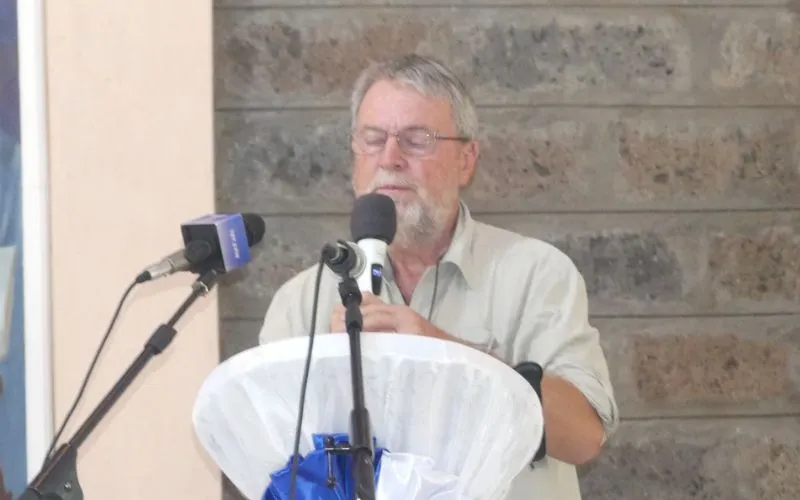 John Ashworth, an English lay missionary who has worked in South Sudan for over 40 years speaking during the launch of new logos at the Daughters of St. Paul Chapel in Westlands, Nairobi. Credit: ACI Africa.
John Ashworth, an English lay missionary who has worked in South Sudan for over 40 years speaking during the launch of new logos at the Daughters of St. Paul Chapel in Westlands, Nairobi. Credit: ACI Africa. Credit: Paulines Publications Africa (PPA)
Credit: Paulines Publications Africa (PPA) Credit: Paulines Publications Africa (PPA)
Credit: Paulines Publications Africa (PPA) Credit: Paulines Publications Africa (PPA)
Credit: Paulines Publications Africa (PPA) Credit: Paulines Publications Africa (PPA)
Credit: Paulines Publications Africa (PPA)


